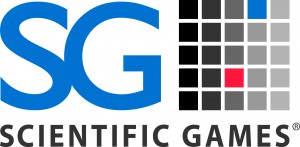Well, that’s it. With the exclusion of evidence gathered from all three Caesars Palace VIP villas used by Paul Phua, the federal government’s  case against the poker pro collapses ignominiously. U.S. District Judge Andrew Gordon had already tossed all the goodies that the FBI had scooped up from Phua’s main villa, allegedly the nerve center of a renegade sports book operation. Now he has also excluded what was found in two ancillary villas, including “an array of computers and television monitors set up to handle the action.”
case against the poker pro collapses ignominiously. U.S. District Judge Andrew Gordon had already tossed all the goodies that the FBI had scooped up from Phua’s main villa, allegedly the nerve center of a renegade sports book operation. Now he has also excluded what was found in two ancillary villas, including “an array of computers and television monitors set up to handle the action.”
David Chesnoff and fellow Phua attorneys argued successfully that the government premised its raid of Phua’s compound on a ruse and anything found was “fruit of the poisoned tree.” The feds claim they would have sought search warrants regardless, but made a poor case before Gordon. They will undoubtedly appeal Gordon’s ruling up the ladder to the Ninth Circuit Court of Appeals but Phua is to be congratulated on becoming a free man. His activities were suspicious, to say the least and I wouldn’t want to associate with him, but the government played fast and loose with due process, and Phua deserves to be cut loose.
* Interest in Bwin.party is heating up. In addition to a $1.7 billion, cash-and-stock offer from Amaya Gaming and GVC Holdings, rival 888 Holdings has gotten into the action. Bwin has been flirting with various suitors since last autumn, luring them with tantalizing glimpses of its PartyPoker, FoxyBingo and PartyCasino brands. The contending entities engaged in certain amount of ritual chest-puffing, with 888 proclaiming, “shareholders representing approximately 59 percent of 888’s share capital have irrevocably committed, subject to customary conditions, to vote in favor of the proposed transaction.”
The GVC/Amaya counteroffer represents a reconciliation of what were once two competing bits for Bwin. Their arrangement is said to be that GVC would spin off PartyPoker and perhaps Bwin’s sports book to Amaya, and keep the rest. The bidding has gotten too rich for Playtech and William Hill‘s wallets, both having begged off further courtship of Bwin. The latter is no small undertaking, supporting a 2,300-person workforce on $667 million in revenues.
What could trip up the deal, from Amaya’s perspective, is that Bwin operates in several unregulated jurisdiction. Trying to get around this “gray market” issue could be an obstacle with regulators. Unless Amaya can devise a workaround, Bwin’s indiscretions would be mean more rough sledding in its efforts to gain U.S. respectability.
* Scientific Games scored a big deal with Penn National Gaming. It will  provide 44% of the Plainridge Park Casino slot floor, populating it with a mix of WMS, Bally and Shuffle Master games, all equipped with Bally’s player-management system, the one that warns a gambler when he’s reached the threshold of his gambling budget — a U.S. first. According to Scientific, it is Penn’s “exclusive partner for casino-management, player-tracking, and rewards systems.” Plainridge Park goes live on June 24.
provide 44% of the Plainridge Park Casino slot floor, populating it with a mix of WMS, Bally and Shuffle Master games, all equipped with Bally’s player-management system, the one that warns a gambler when he’s reached the threshold of his gambling budget — a U.S. first. According to Scientific, it is Penn’s “exclusive partner for casino-management, player-tracking, and rewards systems.” Plainridge Park goes live on June 24.

